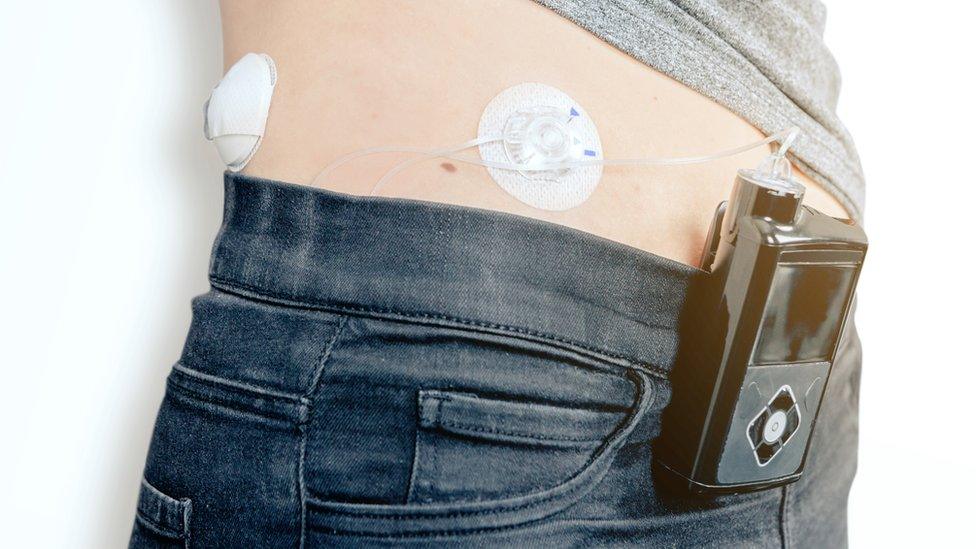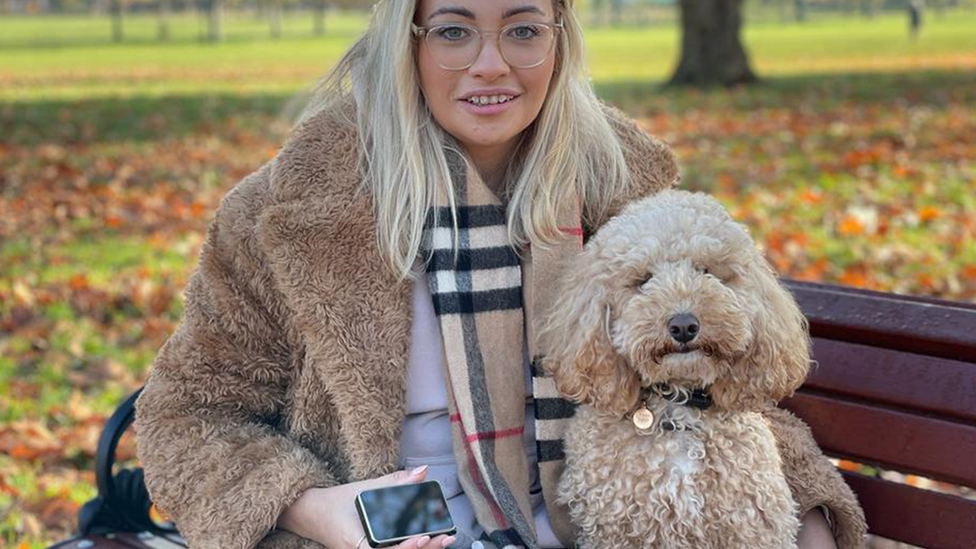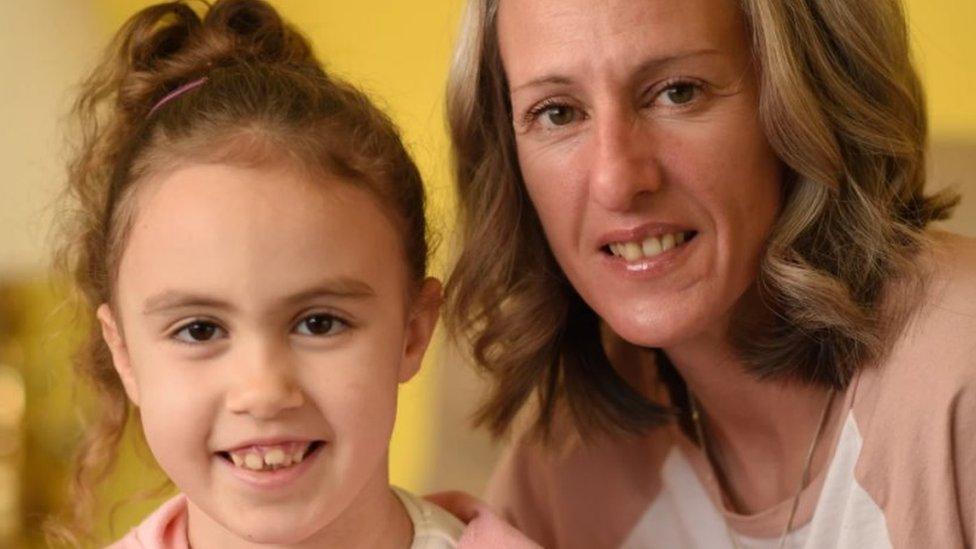Cambridge University researchers trial artificial pancreas in type 2 diabetics
- Published

The device is used with an app that predicts how much insulin is required
An artificial pancreas has been successfully trialled in patients with type 2 diabetes, a university said.
Scientists at the University of Cambridge developed the device which combines a glucose monitor and insulin pump with an app.
The app uses an algorithm that predicts how much insulin is required to keep glucose levels in the target range.
Average glucose levels fell while patients trialled the device, the university said.
Type 2 diabetes causes the level of sugar in the blood to become too high. It's often linked to being overweight or inactive, or having a family history of type 2 diabetes.
The researchers have previously shown that an artificial pancreas run by a similar algorithm is effective for patients living with type 1 diabetes, where the body's immune system attacks and destroys the cells that produce insulin.
They have also successfully trialled the device in patients with type 2 diabetes who require kidney dialysis.
'Simple to use'
For the most recent trial, the researchers recruited 26 patients who were randomly allocated to one of two groups.
The first group would trial the artificial pancreas for eight weeks and then switch to the standard therapy of multiple daily insulin injections; the second group would take this control therapy first and then switch to the artificial pancreas after eight weeks.
On average, patients using the artificial pancreas spent two-thirds (66%) of their time within the glucose levels target range - double that while on the control (32%).
No patients experienced dangerously-low blood sugar levels during the study.
Dr Charlotte Boughton from the Wellcome-MRC Institute of Metabolic Science at the University of Cambridge, who co-led the study, said: "Many people with type 2 diabetes struggle to manage their blood sugar levels using the currently available treatments, such as insulin injections.
"The artificial pancreas can provide a safe and effective approach to help them, and the technology is simple to use and can be implemented safely at home."

Find BBC News: East of England on Facebook, external, Instagram, external and Twitter, external. If you have a story suggestion email eastofenglandnews@bbc.co.uk, external
- Published10 January 2023

- Published1 April 2022

- Published20 January 2022
